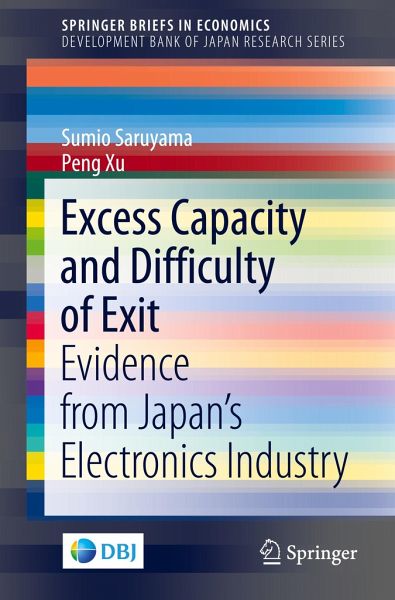
Excess Capacity and Difficulty of Exit
Evidence from Japan's Electronics Industry

PAYBACK Punkte
23 °P sammeln!
This book provides cases and analyses of causes and consequences of difficulty in downsizing and exiting in the electronics industry during the "two lost decades" in Japan. Because of excess capacity in the industry, many electronics companies have been required for downsizing and exit since the 1990s. Exploiting corporate financial and segment datasets, it shows empirical evidence of misallocation of internal funds to "zombie" segments-intra-firm businesses suffering losses consecutively. The topics addressed in the book include the failure of Japanese corporate internal control systems, the ...
This book provides cases and analyses of causes and consequences of difficulty in downsizing and exiting in the electronics industry during the "two lost decades" in Japan. Because of excess capacity in the industry, many electronics companies have been required for downsizing and exit since the 1990s. Exploiting corporate financial and segment datasets, it shows empirical evidence of misallocation of internal funds to "zombie" segments-intra-firm businesses suffering losses consecutively. The topics addressed in the book include the failure of Japanese corporate internal control systems, the lack of capital market pressure, employment protection, and misallocation of internal funds to businesses with few prospects. The last two decades indicate that the Japanese corporate governance systems have failed to resolve problems of excess capacity, as did US systems in the 1980s. Zombie lending is no more than one phase of the difficulty of downsizing and exit in response to excesscapacity in the banking sector. Supported by both data analyses and rich anecdotal evidence, this book is highly recommended to readers who seek a convincing and comprehensive explanation of Japan's two lost decades from the points of view of difficulty in downsizing and exit. The authors' analyses have implications not only for accelerating downsizing and exit in corporate Japan, but also for the world economy.












